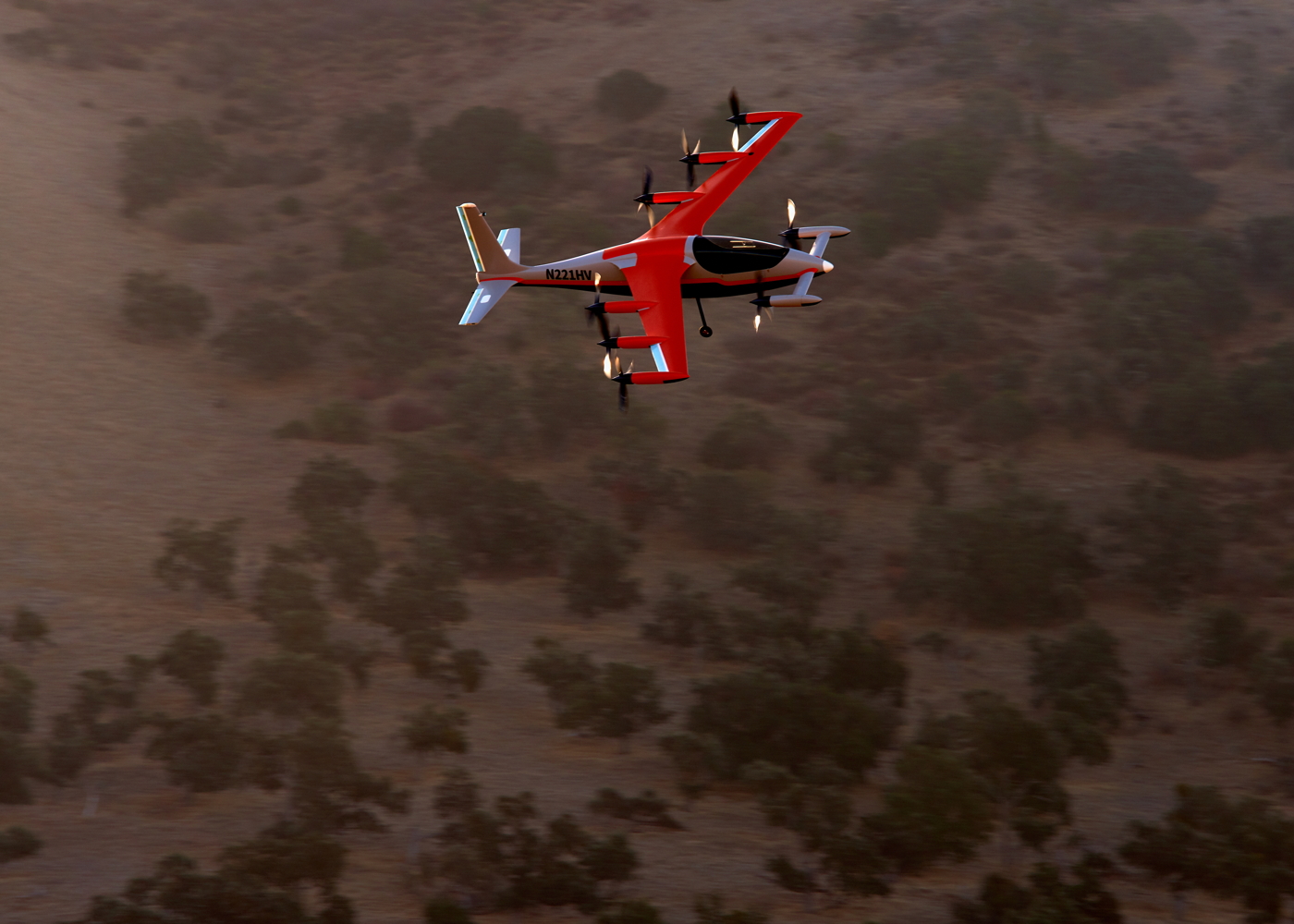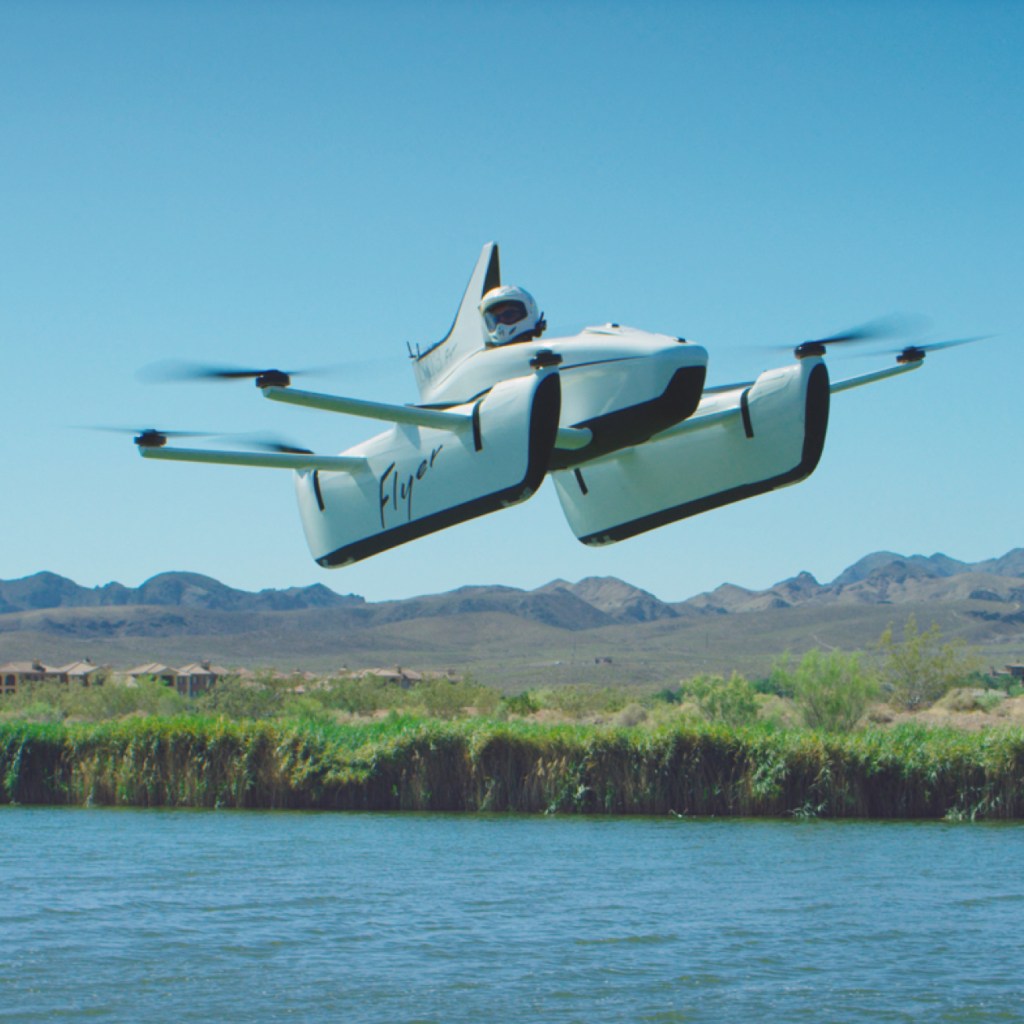Kitty Hawk is shutting down its Flyer program, the aviation startup’s inaugural moonshot to develop an ultralight electric flying car designed for anyone to use.
The company, backed by Google co-founder Larry Page and led by Sebastian Thrun, said it’s now focused on scaling up Heaviside, a sleeker, more capable (once secret) electric aircraft that is quiet, fast and can fly and land anywhere autonomously.
Kitty Hawk is laying off most of Flyer’s 70-person team, TechCrunch learned. A few employees will be brought over to work on Heaviside, according to the company. Those who are laid off will receive at least 20 weeks of pay, plus tenure, depending on how long they were with the company. Former workers will also receive their annual bonus and have their health insurance covered through the end of the year. The company said it will set up placement services to help people find employment.
In December, the company spun out its Cora project — a two-person, autonomous taxi that Kitty Hawk unveiled in 2018 — into a joint venture with Boeing. The joint venture, newly named Wisk, signed an agreement in February with the New Zealand government to set up and run an air taxi trial in the region of Canterbury, with the goal of flying passengers once its Cora aircraft is certified to do so by the country’s aviation authority.
That leaves Heaviside as Kitty Hawk’s one and only mission — unless the company is working on another secret project, which is possible, considering its history. Heaviside is led by physicist and electrical engineer Damon Vander Lind.
“Going forward, we are doubling down on Heaviside as our primary platform,” Alex Roetter, president of Flyer and Thrun wrote in the blog post published Wednesday. “But we would never have gotten here without launching and learning from Flyer, and the amazing team of people who built and operated it.”
For Kitty Hawk, “doubling down” will mean hiring more people and a singular focus on this aircraft. Kitty Hawk is in discussion with the FAA and other parties to move Heaviside from a prototype to an aircraft that can be broadly used.
The moonshot
Kitty Hawk launched its Flyer program in 2015. The single-seater, all-electric, vertical take-off and landing vehicle is powered by 10 independent lift fans and operates between three to 10 feet off the water. The company’s aim was to make it light and easy to use — a goal it says it achieved.
Kitty Hawk built and flew 111 Flyer aircraft and conducted more than 25,000 successful crewed and uncrewed flights with its fleet, according to the company. Kitty Hawk’s mission for the aircraft is what captured the attention and imagination of industry watchers and the media. It wasn’t going to be another lightweight aircraft meant for pilots. The entire aim was to make it accessible for anyone.
“We proved to ourselves that people could safely operate Flyer — and become a pilot — with less than two hours of training,” Roetter and Thrun wrote. “In a single day, we trained 50 new novice Flyer pilots, none of whom were licensed.”
The business model proved to be the bigger challenge.
The Flyer flies low and slow over water, narrowing Flyer’s customer base and use cases. Kitty Hawk explored recreational and commuter applications, but failed to find a path to a profitable business.
“No matter how hard we looked, we could not find a path to a viable business,” Thrun told TechCrunch in an email exchange.
In the past five years, the so-called flying car industry — more accurately described as electric vertical takeoff and landing (eVTOL) aircraft — has evolved. The aircraft are more powerful and longer-range now. And Kitty Hawk has adjusted.
Heaviside, which was under development for two years before it was revealed at TechCrunch Disrupt in fall 2019, is fast, quiet and can be flown anywhere. The aircraft has a range of 100 miles and can reach speeds of up to 180 mph. It can also fly over cities.

Heaviside has proven it can fly. The company has been testing Heaviside — a low-slung, orange and black aircraft with eight rotors and a 20-foot wingspan — for more than two years in a secret location in California.
The focus now is building more reliable systems with software and hardware, as well as implementing more manufacturing and quality control systems.
































Comment